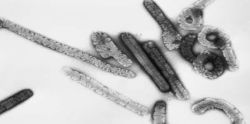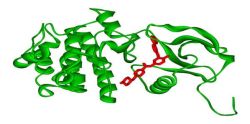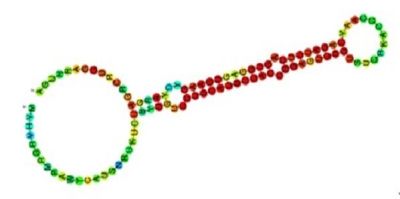It is already known that this year's flu shot is not completely effective and will not be a good match against the influenza strain.
However, researchers at McMaster University and the Icahn School of Medicine at Mount Sinai, New York are confident that a universal flu vaccine is on the horizon thanks to the discovery of a new class of antibodies that are capable of neutralising a broad range of influenza A viruses.
"Unlike seasonal vaccines, which must be given annually, this type of vaccine would only be given once, and would have the ability to protect against all strains of flu, even when the virus mutates," said Matthew Miller, an Assistant Professor in McMaster's Department of Biochemistry and Biomedical Sciences at the Michael G. DeGroote School of Medicine. "This would prevent the occurrence of flu pandemics and poor vaccine efficiency in the case of mismatches, which actually occurred this year."
The study has been published in the Journal of Virology and shows that when the potency of an isolated strain-specific flu antibody was compared with an isolated broadly-neutralising flu antibody in a lab setting, the latter had much weaker neutralisation activity as compared to the strain-specific antibodies. The study also showed that when these antibodies were isolated in their polyclonal setting from human blood, their potencies were comparable with the broadly-neutralising antibodies. These new findings provide the first detailed analyses of the biological activity of broadly-neutralising antibodies.The findings also show that the subtype of antibodies that are present in our lungs and our upper respiratory system are quite potent in neutralising flu.
According to Prof. Miller, the findings are very encouraging and could provide guidance to develop a universal flu vaccine and to determine which would be best for this purpose - an inactivated versus live attenuated.
The inactivated vaccine consists of virus particles that have been grown in eggs under controlled conditions and are killed using a detergent-based method while an attenuated vaccine is created by reducing the virulence of the pathogen but is still kept live. This method allows the virus to replicate harmlessly in order to generate an immune response and renders it useless at infecting the lung.
Prof. Miller is very optimistic that a universal flu vaccine could actually become a reality within the next five to seven years.
Source: McMaster University
Image Credit: Flickr.com
References:
Wenqian He, Caitlin E. Mullarkey, J. Andrew Duty, Thomas M. Moran, Peter Palese, and Matthew S. Miller. 2015. Broadly-Neutralizing Anti-Influenza Virus Antibodies: Enhancement of Neutralizing Potency in Polyclonal Mixtures and IgA Backbones. Journal of Virology.























